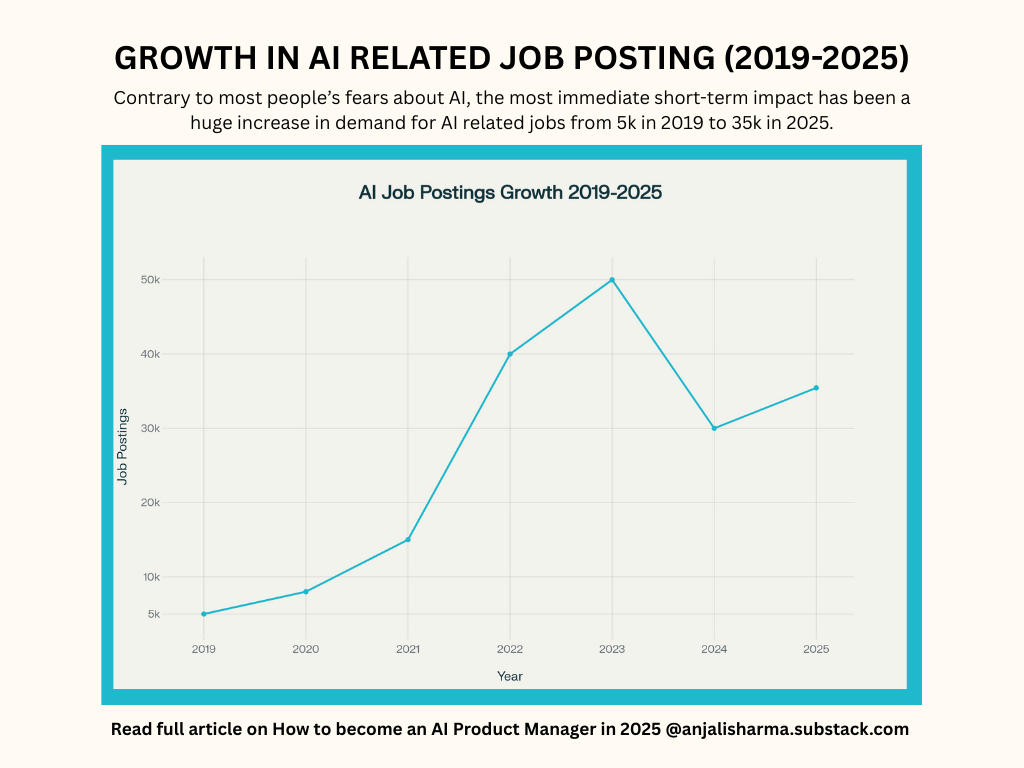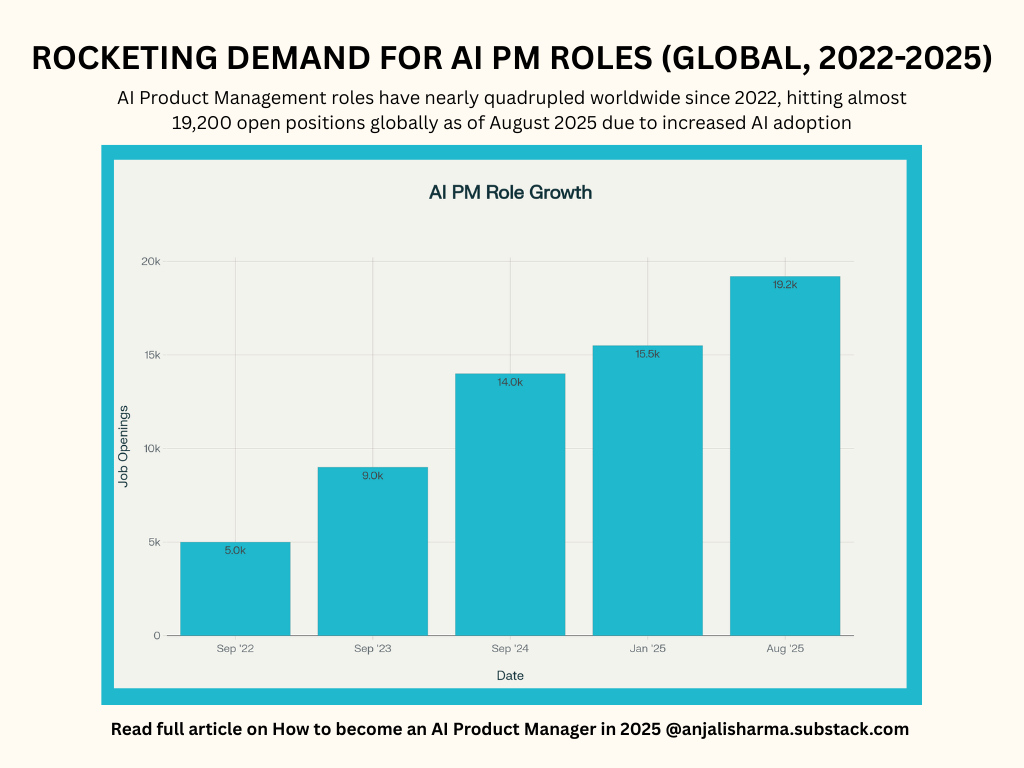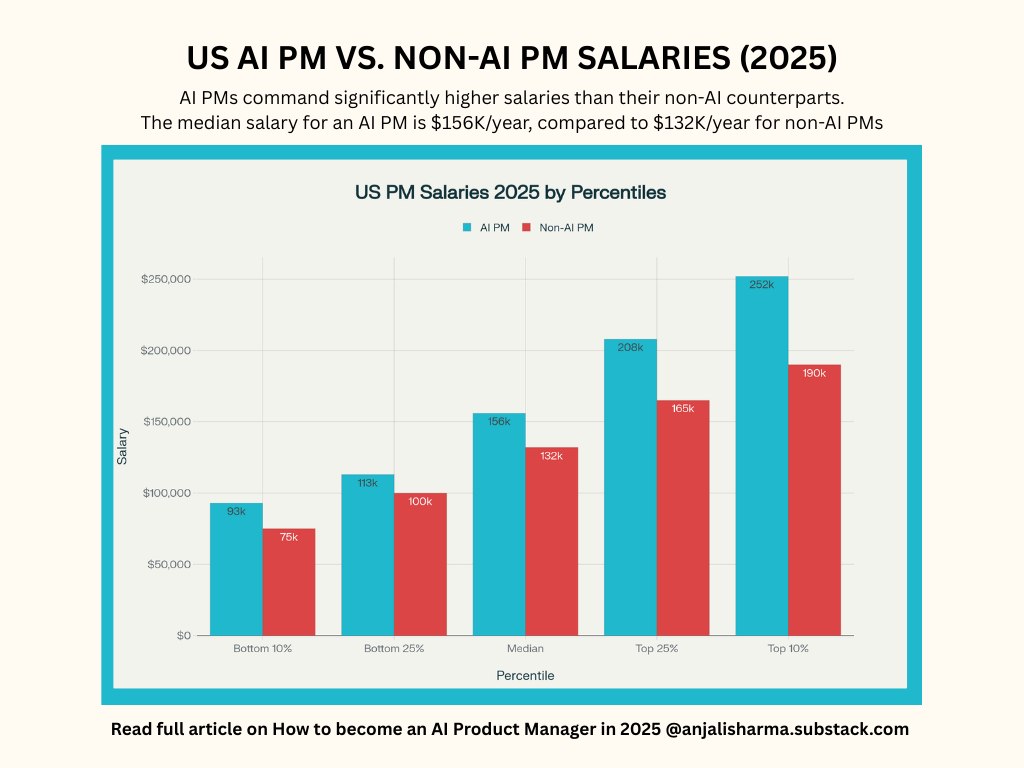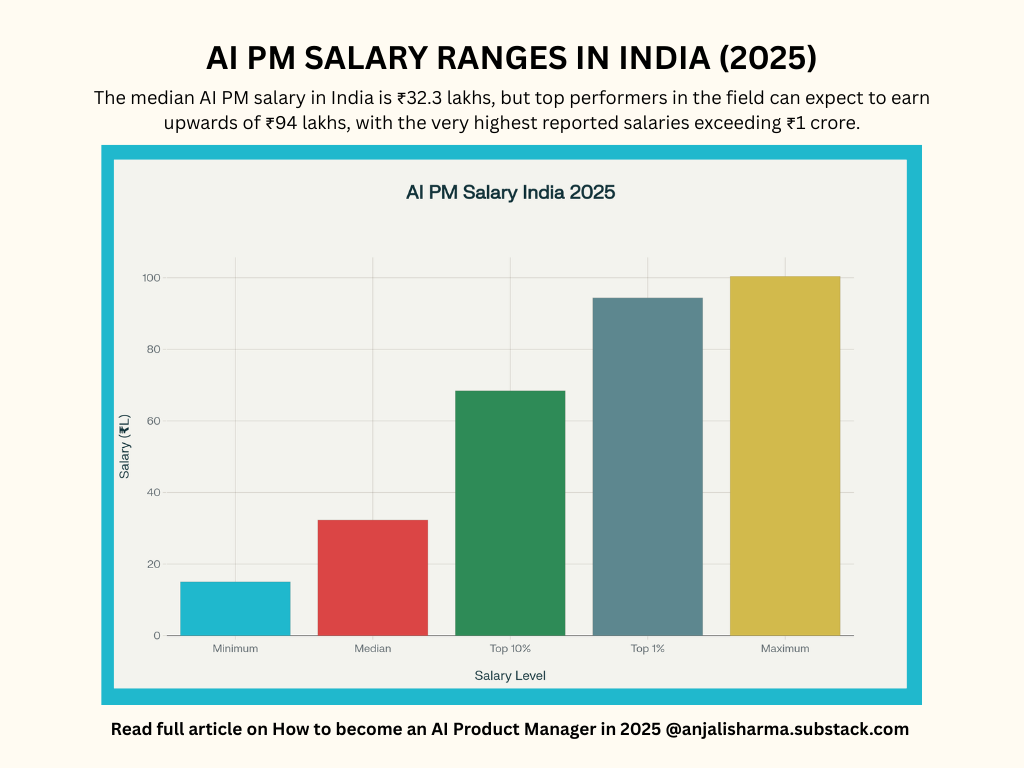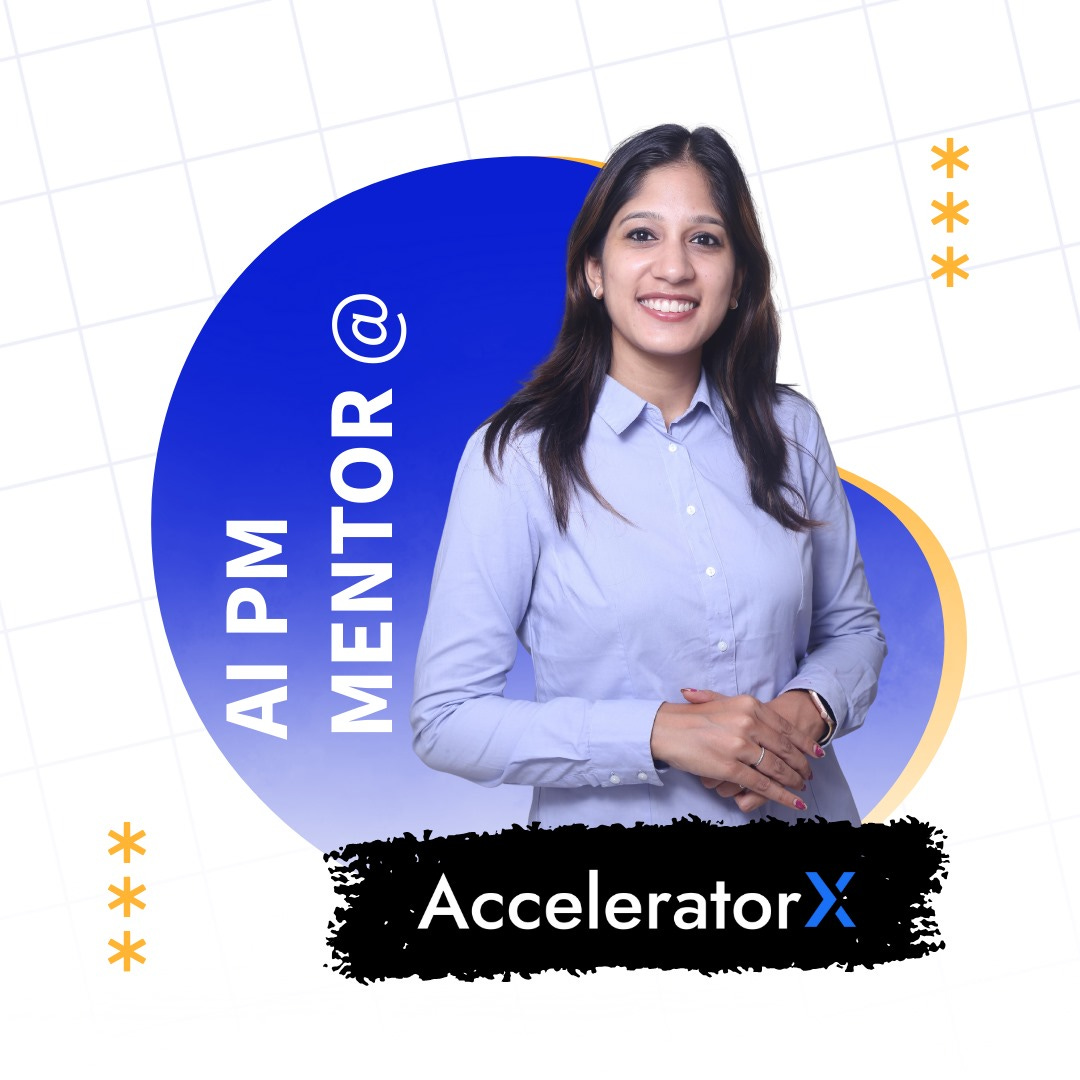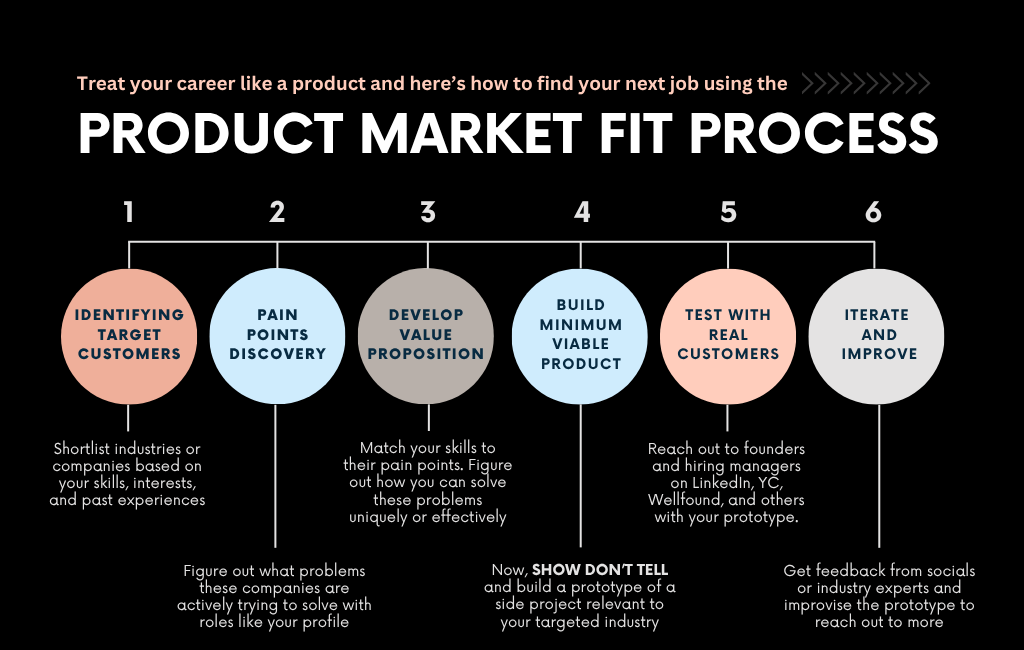How to start the journey of becoming an AI Product Manager in 2025?
The step by step roadmap and resources to break into AI Product Management
AI Product Managers are PMs who build AI features into products or build AI products.
The Rise of AI Product Managers
Contrary to most people’s fears about AI, the most immediate short-term impact has been a huge increase in demand for AI Product Managers.
Here are some of the AI job market trends:
Growth in AI-Related Job Postings (US, 2019-2025)
There has been significant and accelerated growth in AI job postings in the US, reaching over 35,000 postings in early 2025, a sharp increase from just 5,000 in 2019.
This rapid expansion illustrates the increasing demand for AI-related roles, including product management positions.
Rocketing Demand for AI Product Management Roles (Global, 2022-2025):
AI Product Management roles have nearly quadrupled worldwide since 2022, hitting almost 19,200 open positions globally as of August 2025.
The acceleration is driven by widespread industry adoption of artificial intelligence technologies across products and services.
US AI Product Manager Salaries vs. Non-AI Product Managers (2025):
AI Product Managers command significantly higher salaries than their non-AI counterparts across all percentiles.
The median salary for an AI PM is $156K/year, compared to $132K/year for non-AI PMs.
Top 10% of AI PMs exceed $250K/year, underscoring the premium for AI expertise.
4. AI Product Manager Salary Ranges in India (2025):
The median AI PM salary in India is ₹32.3 lakhs, but top performers in the field can expect to earn upwards of ₹94 lakhs, with the very highest reported salaries exceeding ₹1 crore.
This mirrors the global trend of high compensation for AI-savvy product leaders.
So, it’s pretty clear that while core product management and tech roles have been slow to grow, AI and AI product manager roles have continued to grow - fast.
In the overall tech landscape, AI represents 20% of open jobs. And we’re seeing something similar in PM.
So if there’s an area of PM to consider focusing on, it’s AI.
But how to get there? Great Question!
Step by Step Guide to become AI Product Manager
I’ve recently came across the post by Product Growth on the same topic which covers the entire concept in detail here. Here’s their step-by-step guide.
Though this looked quite intimidating, I have simplified the steps to the following:
Step 1 - Familiarize yourself with the core first principles
AI in itself is a million different things.
You need to understand the basic concepts of what it is, how it works, and what it can do for you, and what other people are doing with it (which is now worth infinite possibilities).
So to get started, follow relevant news, trends, people, and channels to stay updated and create a bias for AI. Though there are many people in respective domains, these people have specifically helped me develop a fair understanding.
Aakash Gupta - Founder of Product Growth
Ansh Mehra - Founder of The Cutting Egde School
Dr. Nancy Li - Founder of PM Accelator - Website | LinkedIn
Starter Story - Everyday videos on what people are building with AI
Tina Huang - Founder of Lonely Octopus - Youtube
Seth’s Blog - Legendary Marketer
Zain Khan: Founder of Superhuman - AI news and updates
Allie K. Miller: Former Amazon AI creator
Ruben Hassid: AI comparisons and tutorials on the regular
Jeff Su: Google’s PMM making videos on AI productivity
Once you start personalising your content feed for such content, you’ll get more recommendations on similar content and people along the way.
Their posts will give you a pulse on the latest AI trends and debates.
By immersing yourself in this content, you'll start developing an intuition for AI's capabilities and limitations. This foundation will be crucial as you move forward in your AI PM journey.
As you scroll and absorb, pay attention to:
Common terms: machine learning, deep learning, neural nets, NLP, etc.
Where AI is being used: healthcare, marketing, writing, fraud detection
Real products using AI to solve human problems
Ethical dilemmas, failures, and bias in AI - super important if you’re planning to lead teams
You don’t have to go textbook-deep into everything. But if you can explain AI basics to your non-tech friend over coffee? You’re doing it right.
This stage isn’t about expertise. It’s about breadth over depth.
You’re sketching a mental map of the AI universe - and learning how to navigate it.
And that’s the first real step in becoming an AI Product Manager:
Having enough context to see opportunities where others only see buzzwords.
Step 2 - Take relevant courses
Now that you've reshaped your content diet, it's time to add some structure to your learning. Courses are like hiring a trainer at the gym.
They give you structure and accountability.
The key here is to focus on courses that blend AI knowledge with product thinking. You're not aiming to become the next AI researcher at DeepMind. Instead, you're building the skills to translate AI capabilities into user value.
Start with these foundational courses:
AI for Everyone by Andrew Ng on Coursera: This is your AI 101. It's designed for non-technical folks and gives you a bird's eye view of AI.
Elements of AI by the University of Helsinki: Free, interactive, and surprisingly fun. It covers everything from AI ethics to neural networks.
Machine Learning Crash Course by Google: Because who better to learn from than the tech giant that's betting big on AI?
These courses will give you a solid foundation. They'll help you understand the key concepts, the potential of AI, and its limitations. But don't stop there.
Next, dive into these intermediate courses:
AI Product Management Specialization on Coursera: This is the holy grail for aspiring AI PMs. It covers everything from AI strategy to ethics.
AI-900: Microsoft Azure AI Fundamentals: Don't let the Microsoft branding fool you. This course offers practical insights into deploying AI solutions.
Andrej Karpath’s Neural Networks Zero to Hero course: The man is a legend and will help you build ChatGPT on your own
I’ve also joined AccelatorX as their GenAI product mentor.
If you want to enroll to any one of the AcceleratorX course, use my code ANSHARMA020 to get flat 20% OFF.
As you work through these courses, keep your PM hat on. Always ask yourself: "How could this technology solve real user problems?" or "What new product opportunities does this create?"
Remember, your goal isn't to become an AI engineer. You're building the skills to lead AI product initiatives, to communicate effectively with both technical teams and business stakeholders.
For those who want to go the extra mile, consider these advanced options:
CS50's Introduction to Artificial Intelligence with Python by Harvard: It's challenging, but it'll give you a deeper understanding of AI algorithms.
Deep Learning Specialization by deeplearning.ai: This dives deep into neural networks. It's like taking a peek under the hood of modern AI.
Natural Language Processing Specialization by deeplearning.ai: With the rise of ChatGPT, understanding NLP is becoming crucial for PMs.
As you embark on this learning journey, here are some pro tips to maximize your efforts:
Apply what you learn to real-world scenarios. See a problem at work? Brainstorm how AI could solve it. Focus on building a side project using Vibe Coding tools to showcase your skills in the real world.
Join online AI communities. Participate in discussions on forums like r/MachineLearning or AI Stack Exchange.
Don't just passively consume. Try to explain AI concepts to non-technical friends or colleagues. Teaching reinforces learning.
Keep a learning journal. Jot down key concepts, product ideas, or questions you want to explore further.
Don't feel pressured to complete every course. Focus on understanding core concepts and their practical applications.
By the end of this step, you should be comfortable discussing AI technologies, their potential applications, and their limitations. You'll be able to see beyond the hype and identify real opportunities for AI to create value.
You can explore more courses here.
A word of caution: Don't fall into the certification trap. While certs are okay, they're mostly a marketing tactic—not a golden ticket to AI PM land. Focus on understanding and applying concepts rather than collecting digital badges.
By the end of this step, you should be able to hold your own in a conversation about AI without feeling like you're speaking Klingon. You'll understand the basics of how AI systems work, their current capabilities and limitations, and the ethical considerations surrounding their use.
And as most of these courses will (and should be hands on), by the end of the course, you’ll have a side project to showcase your skills.
Step 3 - Act as a Product Manager to get the AI PM job
This is the most important step, and I’ve written in detail about how I landed a remote AI PM job in 2 weeks using product market fit in my previous article.
How I Landed a Remote AI PM Role in 2 weeks without sending my Resume
Last week, I received an offer to join Mesha, an AI marketing company, as an AI Product Manager, and the most magical part?
I’ll cover the topics of vibe coding and building a side project using AI tools in my next article, so make sure you subscribe to Great Question to stay updated.
I hope this has helped you to reach one step closer to your dream AI PM role.
If you have any queries, feel free to reach out to me via LinkedIn or Twitter. If you are looking for a AI PM mentorship, you can book a call with me through Topmate!
Good luck, and keep asking great questions!


